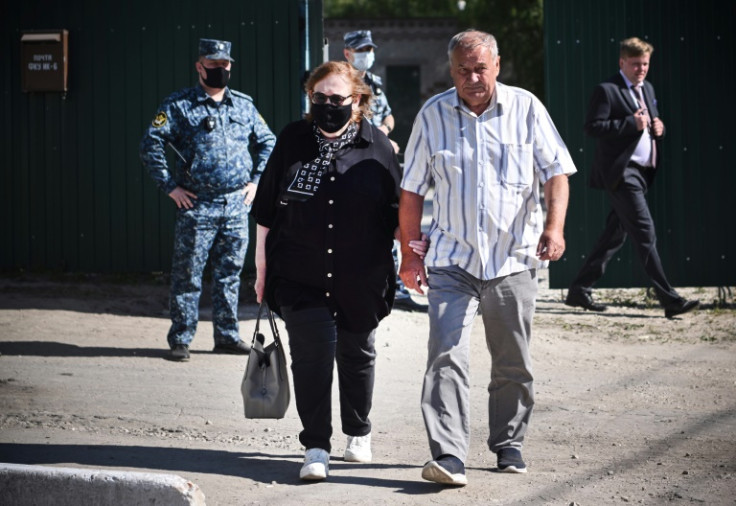Navalny Team Says Mother Barred From Morgue

The mother of late Russian opposition leader Alexei Navalny is being refused access to his body for a third day, his team said on Monday as his widow prepared to meet European foreign ministers.
Navalny's death in an Arctic prison last week has shocked the country's exiled opposition which -- along with the West -- pointed the finger at the Kremlin.
Navalny's allies said investigators told his mother, Lyudmila, the investigation into his death in prison "has been extended."
Russia's prison service said Navalny, 47, died on Friday after a walk in his remote prison above the Arctic Circle.
His mother travelled to the isolated prison colony in the town of Kharp -- around 2,000 kilometres (1,200 miles) away from Moscow -- Saturday but was told his body was not there.
She was then sent to a morgue in the regional hub of Salekhard, but officials there also denied her access to the body.
"Alexei's mother and his lawyers arrived at the morgue early in the morning. They were not allowed to go in," Navalny's spokeswoman Kira Yarmysh said on social media.
"One of the lawyers was literally pushed out. When the staff was asked if Alexei's body was there, they did not answer," she added.
She later said the mother -- who has not spoken publicly -- was told a probe into his death was being prolonged.
"It is not known how long it will continue. The cause of death is still 'undetermined'.
"They're lying, playing for time and do not even hide it," Yarmysh said.
Navalny's team, which have operated from outside Russia for more than two years, have demanded his body be handed over to relatives.
They have accused authorities of "covering up their tracks."
Putin has not yet commented on the death, despite making public appearances after it was announced.
Authorities detained hundreds of mourners who brought flowers to local monuments in Russia over the weekend, rights groups said.
As his relatives and lawyers searched for his body in the Russian Far North, his widow Yulia Navalnaya will head for Brussels Monday to meet EU foreign ministers.
She has held Putin personally responsible for her husband's death.
"I want Putin and all his entourage, Putin's friends and his government to know: they will bear responsibility for what they did to our country, to my family, to my husband," she said when the death was announced on Friday.
The West has blamed Putin and his government for Navalny's death.
EU foreign policy chief Josep Borrell said he would welcome Yulia Navalnaya to the bloc's Foreign Affairs Council on Monday.
"EU Ministers will send a strong message of support to freedom fighters in Russia" and "honour" Navalny's memory, he added on X, formerly Twitter, on Sunday.
Navalnaya was by Navalny's side throughout his more than decade long fight against the Kremlin.
She managed to fly him out of Russia when he was poisoned in 2020 with what doctors said was a nerve agent and defiantly returned with him to Moscow, knowing he would go to prison, in 2021.
As the West mounted pressure on Russia, blaming Putin for the death, the Kremlin remained silent.
Russia's foreign ministry decried "sweeping accusations" by the West in the hours after the death, but no high-placed officials have since commented.
Russia's prison service said in a short statement that Navalny had died "after a walk" in the IK-3 colony -- known as the "Polar Wolf."
In a message from prison on January 9, Navalny described the walking cell as "11 steps from one wall and three steps to another."
He said he was brought for a walk "normally after lunch" or, if he was in solitary confinement, "at 6.30 am" despite polar nights.
"So far, it has not been colder than -32 (Celsius)," he said.
"There are few things that strengthen you as a walk in the (Arctic region) Yamal at 6.30 am," the politician joked, in his usual sarcastic style.
Navalny had continued from behind bars to call on Russians to fight against the regime, calling on them "not to be afraid."
He also watched on in despair as Russia launched its Ukraine offensive, denouncing it from his prison.
© Copyright AFP 2025. All rights reserved.





















